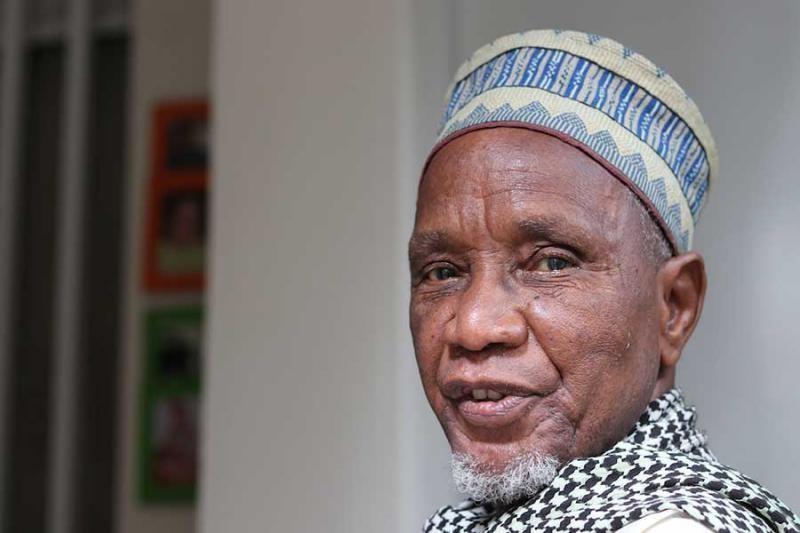The scandal surrounding the remuneration of CNT members, which is all the rage at the moment (unjustified allowances for some, abnormally high allowances for others in this difficult transition period, and almost all without any legal basis), is only the visible part of a system of remuneration for Malian civil servants that is “laissez-guidon”, opaque and profoundly unfair, with huge disparities in remuneration that nothing can justify. This bad practice is not new. As a member of parliament between 2007 and 2013, I said more than once in plenary session of the National Assembly behind closed doors that there will come a day when the perpetrators and beneficiaries of this bad practice of remunerating members of parliament will be held to account. We’re there now, but not quite, because the Constitutional Court has cleared the heads of the CNT, even though the people are demanding accountability.
Until now, this bad practice has only been possible thanks to the complicity between the leaders of the executive and legislative branches of government – a truly unsavory deal. However, we can’t rule out the possibility that the incompetence of the new leaders of the legislative and executive powers has played a role in the continuation of this bad practice. But it’s hard to believe that legislators would receive remuneration without ensuring that it complied with the law, as they would have shown a degree of thoughtlessness and irresponsibility that would be out of all proportion.
Will the CNT leaders’ reaction to the outcry sparked by the revelation of this malpractice be limited to scornful silence for some (the dogs bark, the caravan passes) and to assuming it with arrogance and contempt for others, as has been the case to date? Wisdom would dictate that the transitional authorities take the measure of this storm and take the corrective measures expected by all the Malian people. The scale of the crisis, the catastrophic state of public finances and the heavy sacrifice imposed on the Malian people by the transitional leaders call for an immediate sharp reduction in the remuneration of these unelected legislators who, to top it all, receive an allowance for restitution of CNT sessions in the electoral districts, even though they were not elected in the electoral districts but appointed by the President of the transition.
It’s a pity that the Constitutional Court turned a blind eye to the unconstitutional retroactivity of the law passed by the CNT, and to the undue remuneration received by CNT members and its legal consequences. Let’s hope that the Malian people’s rights will be restored when those in charge of verifying the management of public resources are called in.
One of my greatest expectations of the transition was to reform this remuneration system, a reform I’ve been calling for for over thirty years in my public statements in the press (both print and broadcast). The latest are the two articles published in the Malikilé newspaper on July 06 and 08, 2021, two months after the M5-RFP President took office. I also met with Prime Minister Choguel K Maïga to brief him on the importance and urgency of this reform, and the process involved. Unfortunately, my approach was once again ignored, because too many of those who are supposed to be carrying out this reform are the very people who are benefiting most from this deliberate and organized mess of public sector remuneration. Sawing off the branch you’re sitting on is no easy task. It would be difficult, for example, to continue to benefit from the “black funds” and undertake the far-reaching reform I’m advocating (see my July 08 article for details), or simply to denounce the absence of any legal basis for CNT members’ allowances while the “black funds” in question are in exactly the same illegal, indecent and immoral situation. No form of laundering of these “slush funds” can legitimately take the place of their outright abolition, as these are public funds which must be subject to the strictest legal rules governing the allocation of public resources and the execution of public expenditure. Absolutely intolerable that ruling elites should evade the rigors of the law with such impunity.
The review of remuneration that I advocate in my article, if it is carried out, will reveal the deeply scandalous nature of the state’s remuneration system, in which certain ruling elites continue to fatten themselves at the expense of the vast majority of state employees, who are left to fend for themselves on miserable salaries.
Reducing the lifestyle of the Lords of the State apparatus is inseparable from reducing the lifestyle of the State, a subject on which the mountain of transition has only given birth to a small mouse. Deeply unfortunate for our country, and a great betrayal of those who accepted all the sacrifices (including giving their lives) for a change of governance that would radically break with all the bad practices, injustices and illegalities that have been at the heart of our public governance for so long, and which are at the root of our country’s current dramatic situation.
I remain deeply convinced that the Malian people will not allow the impunity of the elites in public governance to continue indefinitely: if our courts and tribunals fail to deliver justice, they will sooner or later deliver justice themselves. My fervent wish is that it will be sooner rather than later, and all patriots must work towards this to save Mali, because late may be too late. But if, in the meantime, the courts and tribunals in charge of punishing economic and financial offences in public management decide to take the bull by the horns, that would be infinitely preferable.
Konimba Sidibé, economist, former minister and member of parliament.
Journal L’indépendant May 07, 2024










